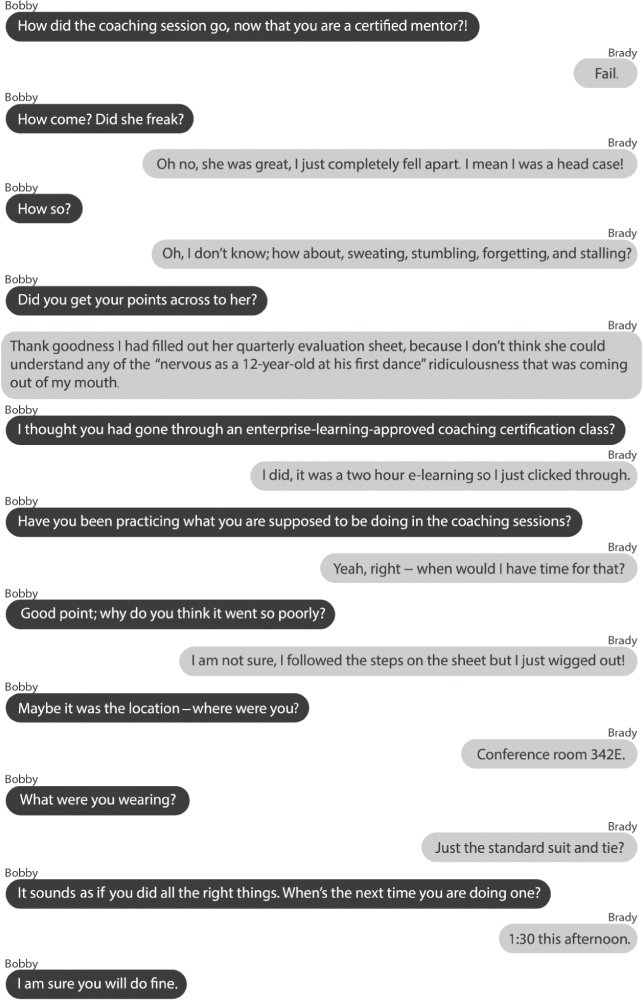Chapter 4The Art of Practice

Improvisation has obviously given me some life-changing insights and is deeply ingrained in my past and current workplaces. However, I also believe in its value to all organizations, big and small, and to humanity in general, because of a very simple and practical reason: It's a great way to practice key behaviors in a safe environment.
Our school of improvisation has two specific educational tracks: One for folks interested in performing improvisation (a very small percentage of our adult students) and one for individuals who are simply taking improvisational classes to better their lives. They come to us for a few hours a week, typically for 18 months or so. The gratitude and appreciation they share with us is more than enough proof to me that improvisation is a great way to practice the most basic of life skills and perhaps some of the most enjoyable of life's hacks.
Part of the reason I think it is so effective is because it is active. Yes, the information and theory behind any behavioral change is important; however, when it comes to things such as becoming a better communicator, being more comfortable with risks, building one's confidence, or reducing the judgment with which we approach others, we need to put ourselves in scenarios with other humans to truly experience—and most importantly, practice—the meaning behind the information and theory. ...
Get The Innovative Mindset now with the O’Reilly learning platform.
O’Reilly members experience books, live events, courses curated by job role, and more from O’Reilly and nearly 200 top publishers.

